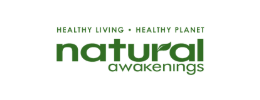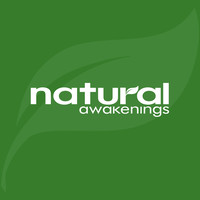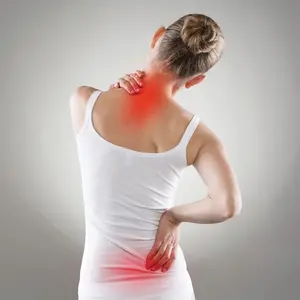Healing Ways
Healing Ways
Toxic Overload: How to Clean Our Water, Food and Indoor Air
by Madiha Saeed, M.D.
Toxins are in the water we drink, the food we eat and the air we breathe. The U.S. Environmental Protection Agency (EPA) Chemical Substances Control Inventory shows the magnitude of our potential exposure, listing more than 86,000 industrial chemicals that are manufactured or processed in this country. Despite regulations and safety protocols, a number of these dangerous compounds run off into waterways or are released into the atmosphere. Food manufacturers use some of them to preserve or beautify their products.
“We live in an increasingly toxic world, and the best defense against becoming overwhelmed by toxins is limiting what we take in as much as possible,” emphasizes Paul Anderson, an integrative and naturopathic clinician and co-author of Outside the Box Cancer Therapies. While our bodies are not designed to handle the accumulation of industrial chemicals, pesticides, pharmaceutics and radiation that seep into our personal space, we can take measures to reduce the assault and protect our health.
Filter Drinking Water
“For the health-conscious individual, toxins in the water is the top threat often overlooked or inadequately addressed,” says Rajka Milanovic Galbraith, an Illinois-based functional medicine practitioner, noting that drinking water is packed with chemicals like per- and polyfluorinated alkyl substances (also known as forever chemicals), solvents, pesticides, metals, bleach and radiological contaminants such as uranium and cesium. These substances can cause cancer, reproductive health concerns, and kidney and liver problems.
“I have treated hundreds of patients who have restored their health and are already eating and living clean by properly filtering their water, but sometimes, even when using a very expensive water filtration system, people will still find high levels of contaminants like MTBE [methyl tertiary-butyl ether], an additive in unleaded gasoline that is banned in several states,” Galbraith says. “Reverse osmosis typically filters most hazardous chemicals from your water, but they can be pricier. An inexpensive alternative are the filters from Clearly Filtered, which reportedly remove 99 percent of MTBE, among many other chemicals.”
“Everyone should try to filter their water with any means available, from a carbon block pitcher to the most aggressive method using a reverse osmosis water filter under their sink. Given the state of municipal—and well—water and the amount we need to clean our bodies and brains every day over a lifetime, we need to get this right,” advises Aly Cohen, M.D., an integrative rheumatologist, founder of The Smart Human and co-author of Non-Toxic: Guide to Living Healthy in a Chemical World.
Read Food Labels
“For the individual newer on their health journey, I would say food additives are the ‘hidden’ environmental exposure that is a serious cause for concern, contributing to autoimmune diseases and from a metabolic standpoint, think weight gain, obesity, pre-diabetes and diabetes,” Galbraith says. “These additives are used to increase palatability, shelf life and texture and can include some you may have heard of, like sucralose, citrate and carrageenan, and others you may not have, like carboxymethylcellulose and polysorbate-80. Carrageenan is common in many nondairy milk alternatives that have made their way into coffee shops.”
According to Galbraith, the most effective way to steer clear of food additives is to avoid or greatly minimize the consumption of highly processed foods. She recommends eating whole foods, especially for those dealing with chronic health issues or experiencing signs or symptoms of an ailment. She also encourages people to read food labels and avoid products with artificial colors, carrageenan, butylated hydroxytoluene (BHT), monosodium glutamate (MSG), nitrates and nitrites, polysorbate 80, propyl gallate, propylparaben, methylparaben, sodium benzoate, potassium benzoate, tert-Butylhydroquinone (TBHQ) and titanium dioxide.
“You are what you eat!” Cohen exclaims. “Eating clean food, without synthetic chemicals that break down the protective microbiome of the gut, is critical to the health of our immune system and our mental health, so we should try to eat whole, unprocessed foods that are USDA [U.S. Department of Agriculture] Certified Organic whenever possible.”
Improve Indoor Air
According to the EPA, “Americans, on average, spend approximately 90 percent of their time indoors, where the concentrations of some pollutants are often two to five times higher than typical outdoor concentrations.” The Environmental Working Group offers a comprehensive blueprint at ewg.org/healthyhomeguide that identifies dangerous chemicals found indoors (from lead, asbestos and flame retardants to volatile organic compounds, antimicrobial agents and radon) and recommends actions to clean up our sanctuaries.
“We can lower our toxic burden by decreasing the chemicals in the air that we breathe, and that begins by reducing the junk we bring into our homes,” Cohen remarks. “Start by removing air fresheners, perfumes, bug sprays, scented cleaning and laundry products, and by opening the windows daily, adding lots of plants and possibly adding an air filter for those who live in cities and areas with poor air quality.”
Madiha Saeed is a holistic, functional and integrative doctor in Naperville, Illinois, and director of education for Documenting Hope and KnoWEwell.
Original article published at Natural Awakenings


 By
By







